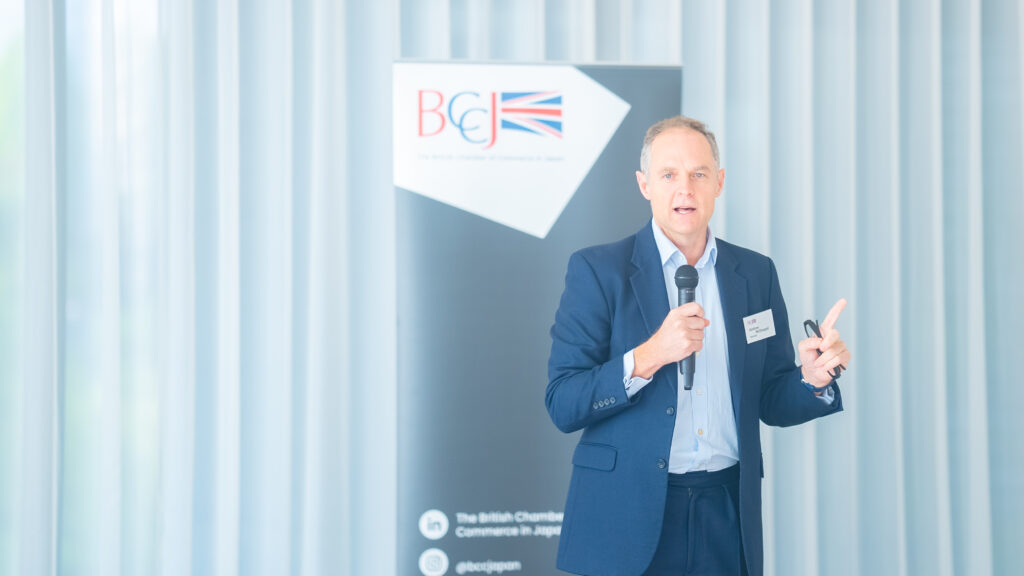Member? Please login
The ESG Imperative – Why Your Commitments Matter Now More Than Ever

Written by Sterling Content
October 20, 2023
Past Event Round Ups
First coined in 2004, ESG or environmental, social and governance has been transformed from a buzzword to a critical imperative for businesses of all shapes and sizes. Embracing ESG principles enhances brand reputation, mitigates risks, fosters innovation, connects brands with a change in consumer values and so much more.
But how can the business world best contribute to the 2030 Agenda for Sustainable Development and its related 17 Sustainable Development Goals consisting of 169 targets? And how much progress has been made since the adoption of the Agenda by the UN Sustainable Development Summit in 2015? With the United Nations Climate Change Conference (COP28) coming up in November, what outcomes can be expected on ESG and how can business leaders help keep the spotlight on responsible business, for people and planet?
Tackling these issues was the focus of the British Chamber of Commerce in Japan event, “The ESG Imperative – Why Your Commitments Matter Now More Than Ever,” sponsored by KPMG and moderated by Angela Ortiz Pettas, sustainability lead at Fabric. The expert presenters comprised John McCalla-Leacy, head of Global ESG at KPMG International and ESG vice chairman at KPMG UK, and Justin Wu, managing director and co-head of climate change Asia Pacific at HSBC.

KPMG’s McCalla-Leacy pointed to recent record-breaking temperatures and natural disasters as examples of the need for action on climate change.
“I don’t recall a period of time when record-breaking has been mentioned so many times, whether it’s floods, wildfire or even snow,” he said.
“Last year we saw 33 million people displaced in one flood event in Pakistan,” he gave as an example. “Those aged 22 years or younger have experienced record-breaking temperatures every year of their lives.”
The climate challenge has sparked increasing pressure on companies from investors, lenders, consumers and regulators to take action on ESG, he said.
KPMG’s 2022 Survey of Sustainability Report, “Big Shifts, Small Steps,” found that 96% of Global 250 companies were reporting on sustainability or ESG, with 64% acknowledging climate change as a risk to their business. Japan is a leader in such reporting, with 94% of companies in the sample including sustainability reporting in annual financial reports.
McCalla-Leacy noted that benefits to companies include a lower cost of capital, as well as being more attractive to staff, as younger employees are increasingly choosing to work in organisations that align with their values.
He said companies needed to tackle the “understanding gap” of knowledge; the “commitment gap” of staying committed to change; and the “action gap” of taking practical steps on ESG.
“It’s very important to have a clear and coherent external message, matched with internal comms and action,” he said.
“The whole business should be in the room [on ESG] at a functional level—finance, HR and procurement; at a divisional level; and from a gender perspective and generational perspective,” he added.
HSBC’s Wu said it was important for companies to match climate reporting with action.
“One example is RE100 membership,” he said, referring to the group of 400 companies that have subscribed to using 100% renewable energy in their operations. “Japan is leading in Asia in terms of the number of companies that have signed up to this, but more work is needed to come up with a plan of how to get it done,” he said.
Even small businesses will be increasingly impacted by climate change mitigation measures due to their role in the supply chains for larger enterprises.
In the European Union (EU), companies will have to act on ESG due to regulations such as the Carbon Border Adjustment Mechanism (a carbon tariff on carbon-intensive products imported by the EU) and the Corporate Sustainability Reporting Directive in Europe, which will extend the scope of the European Union taxonomy and mandate disclosure against ESG indicators from January 2024.
“Larger companies are requesting data from their supply chain on greenhouse gas emissions or labour … it’s a mistake for smaller companies to say it’s happening far away from us,” McCalla-Leacy said.
He suggested that smaller businesses focus on the most material items, such as decarbonising offices or reducing the carbon footprint of their technology networks, as well as upskilling and educating staff.
Asked about practical tools on ESG reporting, McCalla-Leacy pointed to the information available from sources such as KPMG’s ESG Academy, which offers ESG training and certification.
Questioned about responding to “climate deniers,” Wu pointed to data from the Intergovernmental Panel on Climate Change showing global warming had reached 1.1 degrees Celsius above pre-industrial levels, resulting in more extreme weather events.

In Japan, a Kyoto temple’s measurements have shown that the cherry blossom season has reached full bloom on the earliest date since records began 1,200 years ago.
Amid suggestions that the momentum towards climate change action has slowed following the Covid-19 pandemic and other crises, Wu noted that US$1.7 trillion is set to be invested globally in clean energy in 2023. Investment in solar energy will eclipse investment in oil production this year for the first time, according to the International Energy Agency.
McCalla-Leacy also noted that Norway’s sovereign wealth fund will require companies to move from “target setting to transition planning” and that the US Inflation Reduction Act, described as the largest climate investment in US history, would have a multi-billion-dollar impact.
“Even though the politics of global climate change negotiations are complex, the money is definitely flowing in this direction,” Wu said.
“Ninety-two per cent of the world’s GDP is now subject to a net zero [emissions] goal – do you make a choice about being successful in that environment, or wait and see?”
McCalla-Leacy said businesses should “focus on the change itself and on having a business that is ready and fit for the future, which is governed well, and on having products and services that serve clients and the community.
“Fortune favours the brave and the bold. Those companies who go forward and manage their business and operations in a robust way, we believe will have the upper hand when we make that transition to a low carbon economy,” he added.







